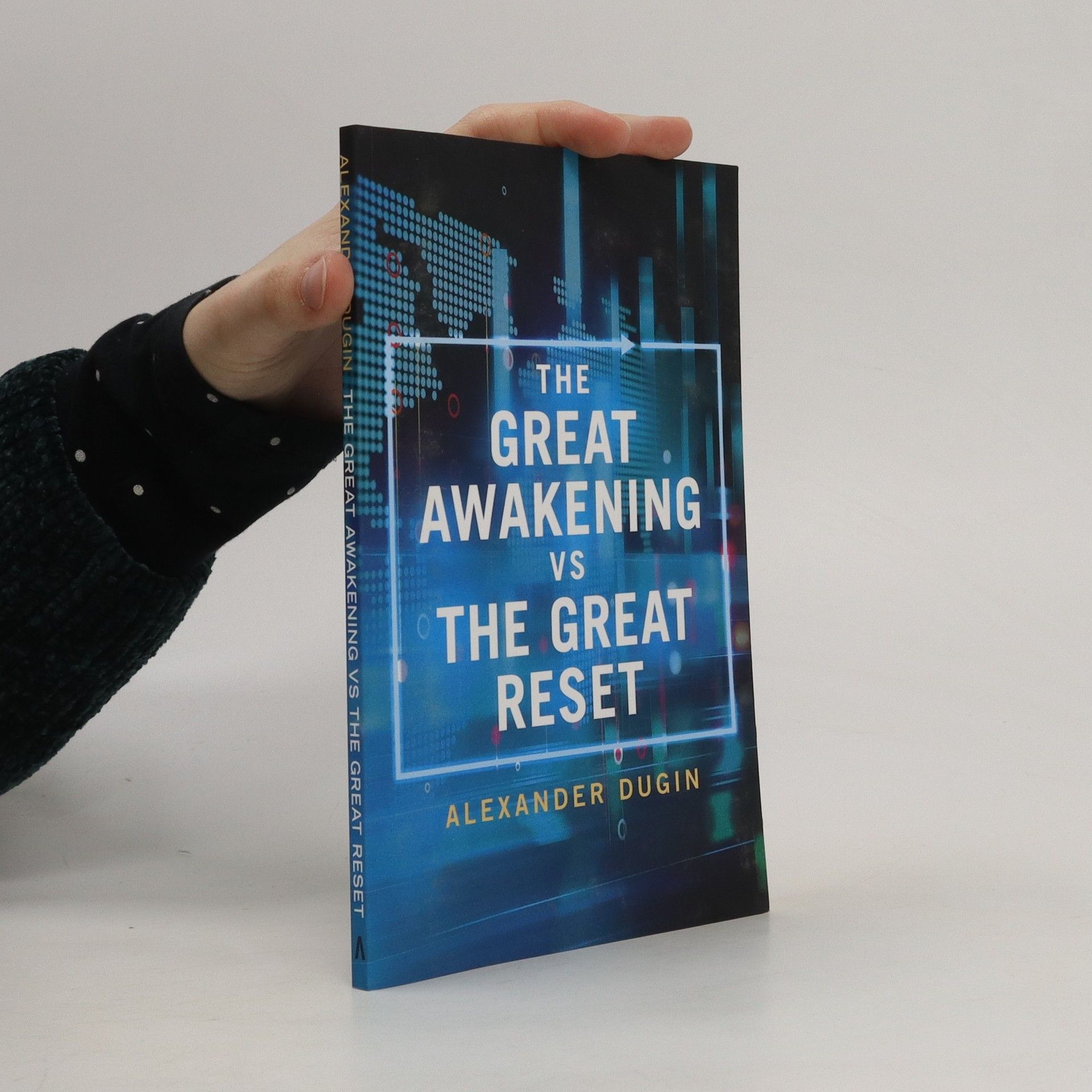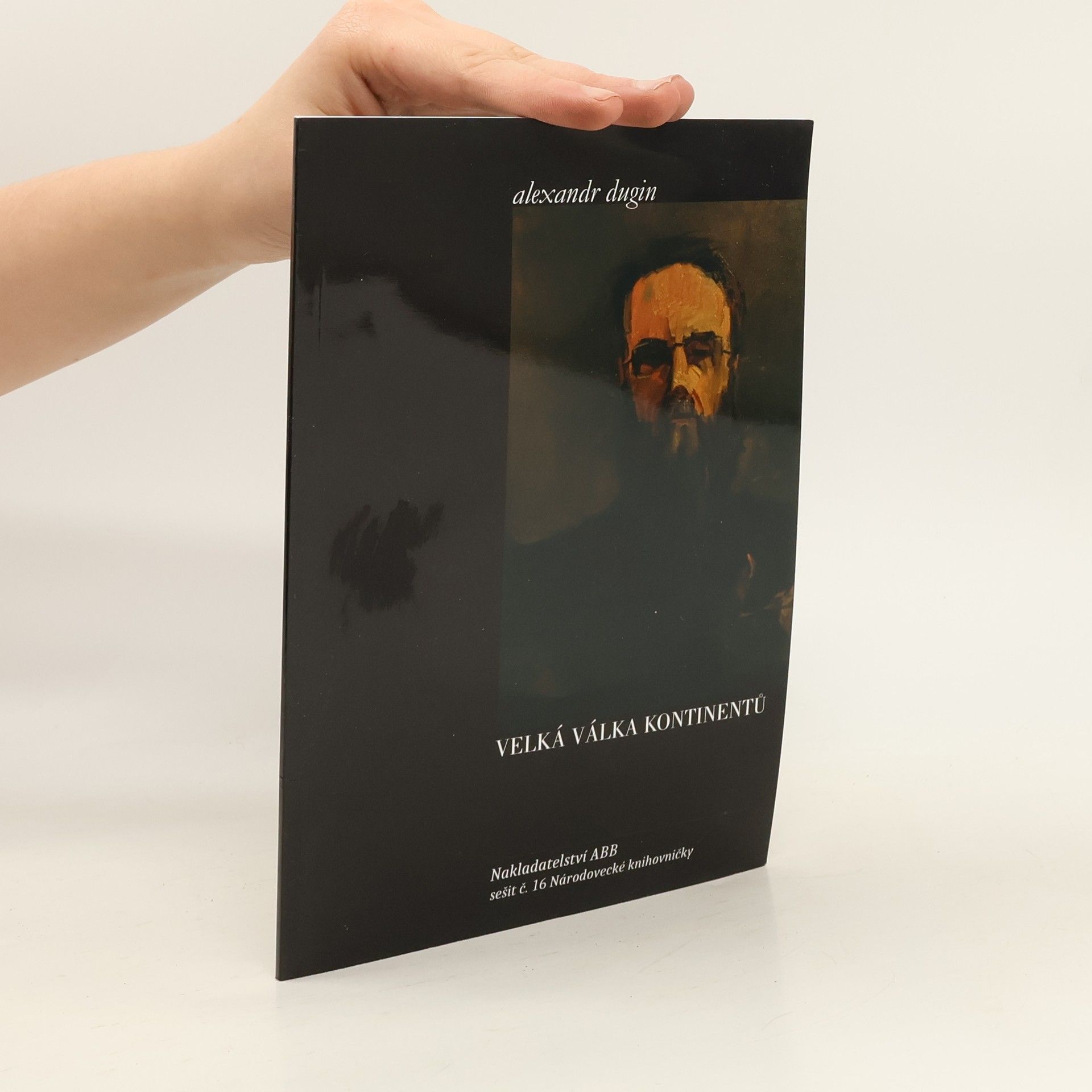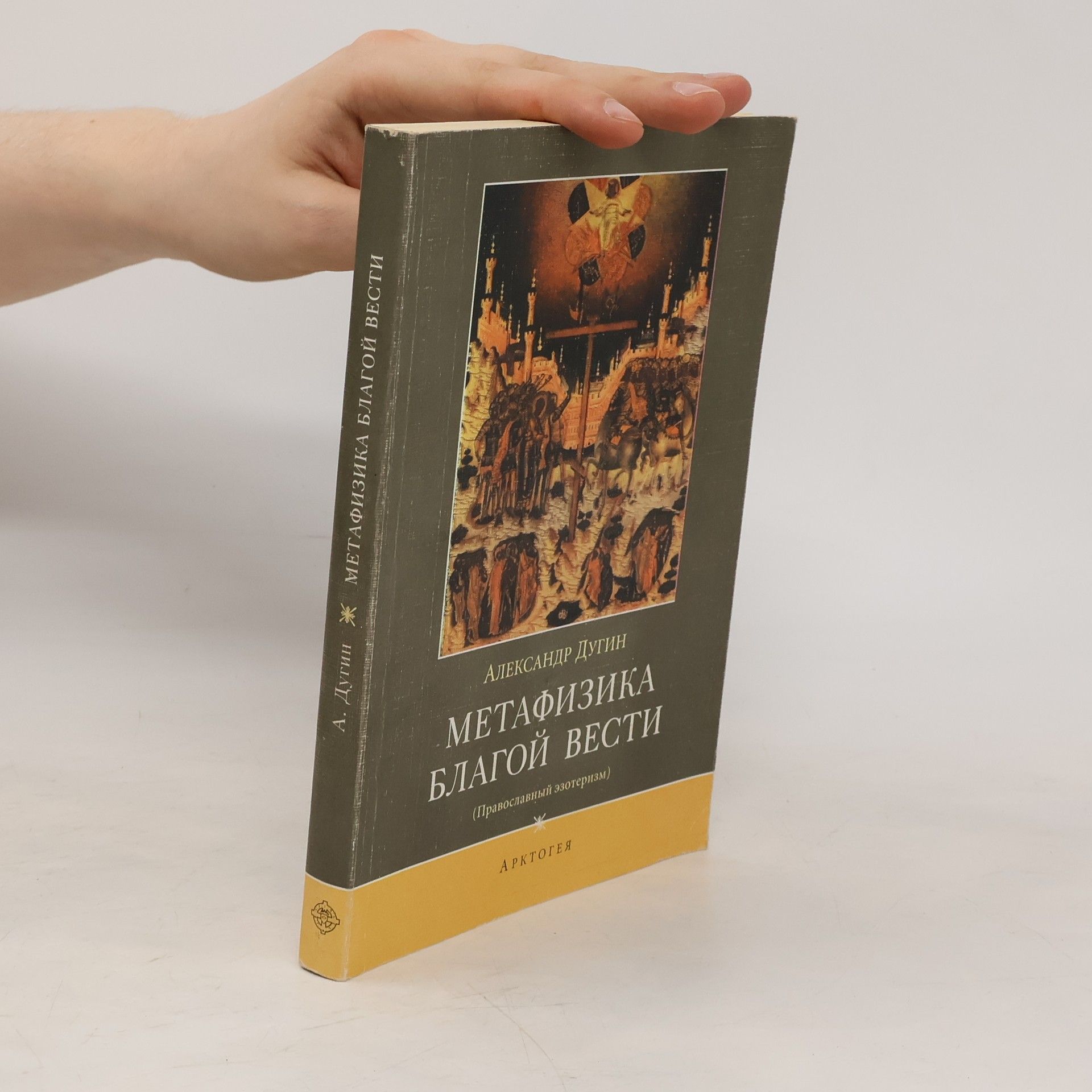Alexander Dugin's The Great Awakening vs the Great Reset is an open declaration of war against the twin diseases of liberalism and Western political modernity. Dugin calls upon the inhabitants of the Heartland to relentlessly attack, on all theoretical and practical fronts, the global elites of the coastlands, who try to impose their perverse, anti-human ideals by ruthlessly eradicating the long-standing cultures and traditions of all peoples in the world. The demented usurper Joe Biden and his slavish Democrat acolytes are opposed by the Trumpists, who represent normal America and do not want to see their country submerged in a one-world, transhumanist dystopia. Just like the other rooted societies, they want to preserve their time-honoured way of life amidst the strangling tentacles of hysterical trans- and homosexuals, treacherous anti-White agitators and murderous Black Lives Matter grifters and terrorists. Thus the stage is set for a showdown of truly apocalyptic proportions, pitting the forces of righteous anger, those who want to preserve traditions and the true richness of human diversity, against the Antichrist and his Soros-backed minions of insidious degeneracy and evil, who want to erase all bonds and communities - down to the human race itself.
Aleksandr Dugin Livres
- Hans Zivers
- Ганс Зиверс
Aleksandr Gelyevich Dugin est un politologue et traditionaliste dont les idées se concentrent sur la restauration du pouvoir et de l'influence russes. Il est connu comme l'un des principaux idéologues de la création d'un empire eurasien qui s'opposerait aux intérêts nord-atlantiques. Ses activités politiques visent à la restauration de l'Empire russe par l'unification de territoires russophones. Le travail de Dugin se caractérise par un effort pour rétablir la domination russe par des ambitions territoriales et une résistance idéologique aux puissances occidentales.






Templars of the Proletariat
- 384pages
- 14 heures de lecture
In Templars of the Proletariat, Alexander Dugin explores National Bolshevism, tracing its various origins, such as Orthodox esotericism and the notion of the Third Rome. He also acknowledges Western influences like Guy Debord and Aleister Crowley. Dugin highlights the "Scythian movement" within "left-wing National Bolshevism," illustrating that the October Revolution was not merely political but was deeply linked to national identity. Major figures included Alexander Blok and Maxim Gorky. This movement evoked the archaic roots of the nation and embraced tumultuous change to birth a new world. In contrast, "right-wing National Bolshevism" views a nation's journey as unchanging. Nikolay Ustryalov saw revolutions as brief moments in a long history. The essence of a nation endures, with real conservatism rooted in its lasting spirit, not just in political shifts. One of the most important components of this work is its reorientation away from the profane, secular politics of "left" and "right" and toward the sacred, metaphysical politics of "the Absolute," touted as the only valid opposition to Karl Popper's "Open Society." This work can serve as a Rosetta Stone for anyone who seeks a comprehensive understanding of Dugin's intellectual origins; it is an interpretive key to his entire conceptual universe.
The Rise of the Fourth Political Theory
- 248pages
- 9 heures de lecture
The sequel to the bestseller The Fourth Political Theory, expanding further on the fourth political theory. All the political systems of the modern age have been the products of three distinct ideologies: the first, and oldest, is liberal democracy; the second is Marxism; and the third is fascism. The latter two have long since failed and passed out of the pages of history, and the first no longer operates as an ideology, but rather as something taken for granted. The world today finds itself on the brink of a post-political reality - one in which the values of liberalism are so deeply embedded that the average person is not aware that there is an ideology at work around him. As a result, liberalism is threatening to monopolize political discourse and drown the world in a universal sameness, destroying everything that makes the various cultures and peoples unique. According to Alexander Dugin, what is needed to break through this morass is a fourth ideology - one that will sift through the debris of the first three to look for elements that might be useful, but that remains innovative and unique in itself.
Eurasian Mission: An Introduction to Neo-Eurasianism
- 222pages
- 8 heures de lecture
According to Alexander Dugin, the twenty-first century will be defined by the conflict between Eurasianists and Atlanticists. The Eurasianists defend the need for every people and culture on Earth to be allowed to develop in its own way, free of interference, and in accordance with their own particular values. Eurasianists thus stand for tradition and for the blossoming variety of cultures, and a world in which no single power holds sway over all the others. Opposing them are the Atlanticists. They stand for ultra-liberalism in both economics and values, stopping at nothing to expand their influence to every corner of the globe, unleashing war, terror, and injustice on all who oppose them, both at home and abroad. This camp is represented by the United States and its allies around the world, who seek to maintain America's unipolar hegemony over the Earth. The Eurasianists believe that only a strong Russia, working together with all those who oppose Atlanticism worldwide, can stop them and bring about the multipolar world they desire. This book introduces their basic ideas. Eurasianism is on the rise in Russia today, and the Kremlin's geopolitical policies are largely based on its tenets, as has been acknowledged by Vladimir Putin himself. It is reshaping Russia's geopolitics, and its influence is already changing the course of world history.
Ethnos and Society
- 250pages
- 9 heures de lecture
In this monograph, Dugin provides an overview of the primary foreign and Russian sources and schools that influenced the establishment of ethnosociology as an independent and original scientific discipline. Dugin offers a profoundly philosophical approach to the categories of the "ethnos," "narod," "nation" and "society," providing clear definitions of these concepts, and expounding a broader ethnosociological taxonomy. For the first time in the field, this work brings a consistent approach to a broad spectrum of knowledge, as well as elucidating various methodologies of ethnosociological analysis, bringing everything together into a single, easily applicable system. This volume is an invaluable manual for those specializing in sociology, philosophy, political science, cultural studies, ethnology, international relations, state, and law, as well as being of interest to those who follow the current developments in the humanities.
Last War of the World-Island
- 170pages
- 6 heures de lecture
Čtvrtá politická teorie
- 480pages
- 17 heures de lecture
Každý politický systém moderní éry se odvozoval od některé ze tří velkých ideologií. První a nejstarší z těchto ideologií je liberalismus, druhou je komunismus, třetí je fašismus. Druhá a třetí ideologie se diskreditovaly a časem opustily jeviště dějin západního světa. Liberalismus s námi zůstal dodnes, nikoli však jako ideologie, nýbrž jako cosi daného. Vědomě si jej nevybíráme - tiše se předpokládá, že s ním souhlasíme. Svět kolem nás proto stojí na prahu postpolitické reality, kde jsou hodnoty liberalismu natolik zažité, že jejich ideologický rozměr si už nikdo ani neuvědomuje. Autor této knihy přichází s návrhem na vypracování čtvrté politické teorie. Ta bude čelit liberalismu z nových pozic, odlišných od komunismu i fašismu a překračujících dělení na pravici a levici. Ve svém díle hledá cesty, jimiž se myšlení v rámci tohoto nového paradigmatu může ubírat: nebojí se při tom sáhnout po těch zdánlivě nejsubverzivnějších plodech postmoderního myšlení. Alexandr Dugin (*1962) je „myslitelský chameleon“, nechvalně známý bezpodmínečným prosazováním velmocenské pozice Ruské federace. Někteří mu připisují vliv na rozhodování Kremlu. Studium jeho díla je důležité pro pochopení současného Ruska a ideologických cest, jimiž chce hájit své zájmy.
Die Vierte Politische Theorie
- 326pages
- 12 heures de lecture


